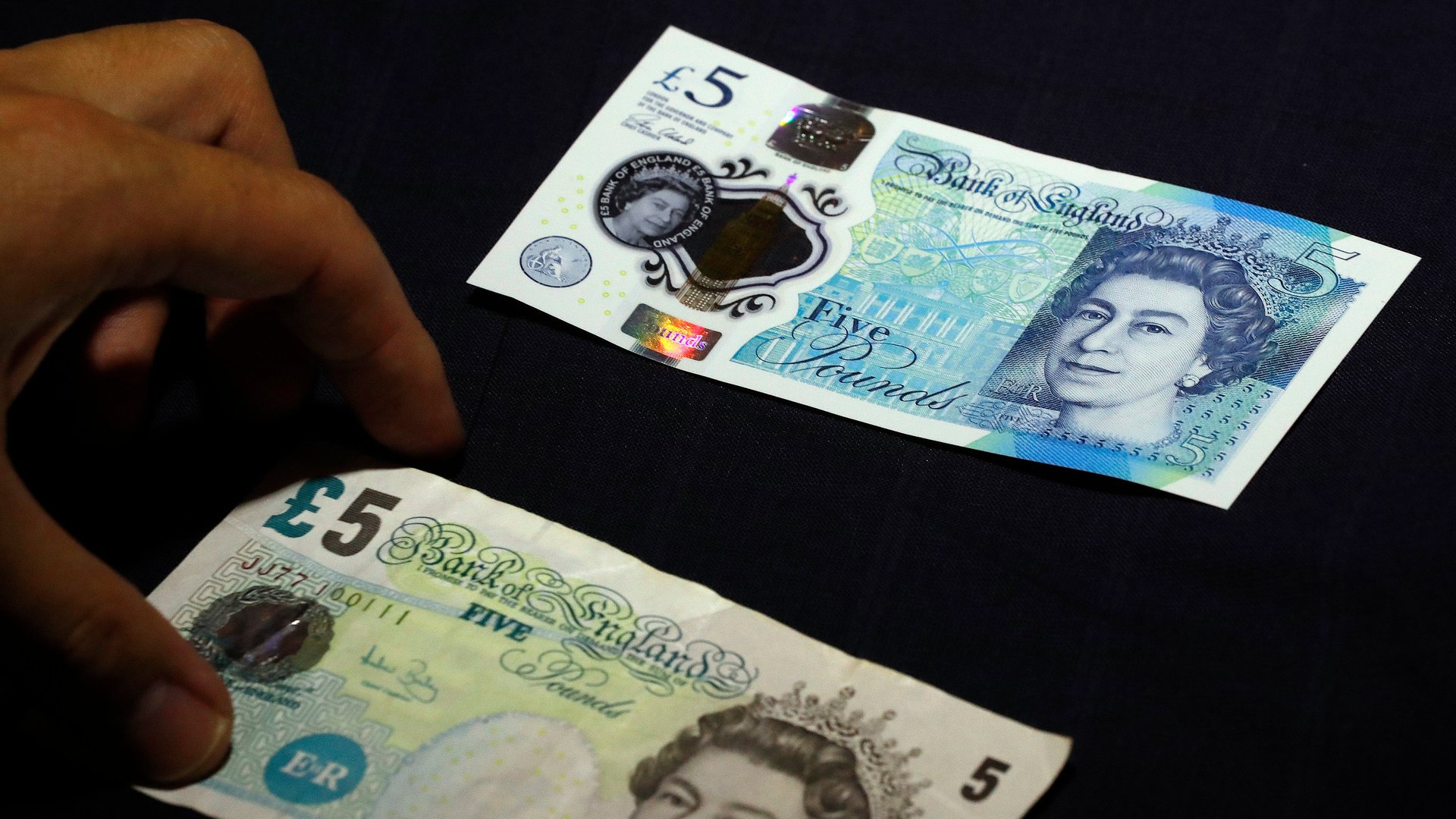Despite religious opposition—and vegans—the Bank of England will keep animal fat in its banknotes
“We demand that you cease to use animal products in the production of currency.” More than 130,000 people recently signed this petition, aimed at the Bank of England. (Who says central banking doesn’t stir up passions?)


“We demand that you cease to use animal products in the production of currency.” More than 130,000 people recently signed this petition, aimed at the Bank of England. (Who says central banking doesn’t stir up passions?)
The animal product in question is tallow, derived from beef or mutton. The bank admitted that its new plastic notes, launched with the £5 in September last year, contain trace amounts of it, stoking some controversy.
But after an extensive investigation into alternative methods to make the money, the bank said, essentially, “deal with it.” The fat-laced fiver will continue to be printed, as will a new plastic tenner, starting in September this year.
“Trace,” chemically speaking, means a substance is present in fewer than 100 parts per million, or 0.01% of the total. But when all the paper £5 and £10 notes are replaced over the next few years, there will be some 1.1 billion plastic banknotes in circulation, each containing trace amounts of tallow. How many cows, then, will die in the name of British money?
On average, slaughtering one cow yields 40 kilograms of tallow. Considering that a banknote weighs about 0.7 grams, each contains roughly 0.00007 grams of tallow. That means the total amount of tallow that those new £5 and £10 plastic notes will need is around 77 kilograms. That means the Bank of England’s move to plastic notes, which are more secure and durable than paper notes, comes at the cost of two cows to date. By comparison, the UK slaughters some 2.6 million cattle each year for food.
This still may not satisfy critics who have strong philosophical or religious grounds for rejecting animal-derived products in money. “This is unacceptable to millions of vegans, vegetarians, Hindus, Sikhs, Jains and others in the UK,” reads the petition.
Weighing these concerns against the cost of changing course, the bank decided that the tallow will remain. The bank has already spent £70 million ($88 million) on printing notes now in circulation and buying materials for more in the future. In its opinion, the outrage caused by an “extremely small amount” of tallow does not outweigh the advantages of the newfangled notes, nor justify spending more taxpayer money to produce notes in a different way.
For now, the £20 and £50 notes, which are printed on paper, will remain free from animal fat. The bank is looking for plant-based alternatives in time for 2020, when the £20 is scheduled to get its plastic makeover.